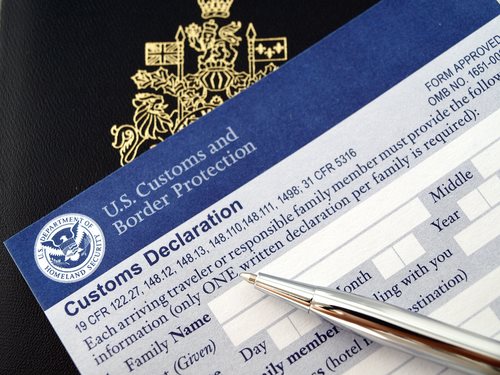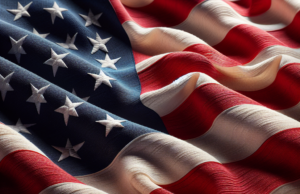
Important Facts on the US Consulate
The United States has a vast network of consulates and embassies across the globe to facilitate international relations and promote American interests abroad. Consular services provided by the US Consulate entail a variety of tasks, including visa processing, passport renewal, assistance to US citizens in distress, and cultural exchange programs. The US Consulate is an essential component of US foreign policy and plays a crucial role in promoting economic development and strengthening diplomatic ties with other countries. In this article, we take a closer look at some of the important facts on the US Consulate.
What is a US Consulate?
A US consulate is a diplomatic mission maintained by the US government in a foreign country to provide a range of consular services to US citizens and foreign nationals. Consular services include issuing visas, passports, and travel documents, assisting US citizens in emergencies, facilitating trade and commerce, and promoting cultural exchanges. Consulates are governed by the Vienna Convention on Consular Relations, which defines the rights and obligations of consular officials and the host country.
Consulates are different from embassies, which are larger diplomatic missions representing the US in foreign countries. Embassies are headed by ambassadors who are nominated by the US President and confirmed by the Senate. Consulates are under the authority of the US Department of State and are headed by consuls general or consular officers.
History of US Consulates
The first US consulate was established in Liverpool, England, in 1790. The US government appointed Thomas Barclay as the first US consul. Initially, US consulates were established in ports of entry to monitor economic activity and provide assistance to American sailors and merchants. Over time, consular services expanded to include the protection of US citizens, promotion of trade and commerce, and cultural exchanges.
During World War II, the US government established numerous consulates and embassies to support the war effort and maintain foreign relations. By the end of the war, the US had a vast network of diplomatic missions in Europe, Asia, and the Middle East. Today, the US has over 270 diplomatic missions worldwide, including 70 embassies and 200 consulates.
Functions of US Consulate
1.Visa Processing
One of the primary functions of the US Consulate is to process visa applications for foreign nationals who wish to enter the US. The type of visa required depends on the purpose of the visit, such as tourism, business, study, or immigration. The process of obtaining a US visa involves submitting an application, attending an interview, and meeting specific eligibility criteria. US consular officers use a range of criteria to determine visa eligibility, including the applicant’s ties to their home country, financial status, and criminal record.
2.Passport Services
The US Consulate also provides passport services for US citizens who need to renew or replace their passport. Passport services include issuing new passports, replacing lost or stolen passports, and updating passport information. US citizens can also obtain emergency passports if they need to travel urgently.
3.Assistance to US Citizens
The US Consulate provides assistance to US citizens who encounter difficulties while traveling or living abroad. This includes services such as facilitating emergency medical evacuation, providing temporary financial assistance, and issuing consular reports of birth abroad. Consular officials can also provide information on local laws and regulations and help US citizens in distress.
4.Promoting Cultural Exchange
The US Consulate is also involved in promoting cultural exchange programs between the US and other countries. These programs aim to foster mutual understanding and respect between cultures and promote American values and ideals. Programs may include academic exchanges, cultural events, and English language teaching.
US Consulate Locations
The US has diplomatic missions in every region of the world, including Africa, Asia, Europe, the Middle East, and the Americas. The largest US embassy is in Baghdad, Iraq, and the smallest is in Funafuti, Tuvalu. The US also has consular offices in several US territories, including Puerto Rico and the US Virgin Islands.
In addition to embassy buildings, the US government also maintains residences for ambassadors and other diplomatic staff in many countries. These properties are referred to as chanceries and are used for official receptions, meetings, and events.
US Consulate Security
Security is a top priority for US diplomatic missions around the world. US consular offices are often located in high-risk regions and are vulnerable to threats from terrorist organizations, criminal gangs, and even hostile governments. To ensure the safety of consular staff and US citizens, consular offices are heavily fortified and have strict security protocols in place.
US consular security measures include armed guards, CCTV surveillance, and blast-resistant glass. Consular staff may receive training on personal safety, crisis management, and emergency response. The US government also cooperates with local law enforcement agencies to identify and neutralize security threats.
US Consulate Staffing
The US Consulate employs both American and local staff to carry out its mission. American staff includes career diplomats, consular officers, security personnel, and administrative staff. The qualifications required for a job at the US Consulate depend on the position, but typically include US citizenship, a security clearance, and relevant professional experience.
Local staff includes citizen employees who are hired by the US government to carry out support functions such as maintenance, translation, and security. Local staff are recruited according to local labor laws and are subject to the same security clearance and background check process as American staff.
US Consulate Funding
The US government allocates funds to the Department of State, which is responsible for managing the budget for US consulates and embassies. The US Consulate budget includes expenses such as salaries and benefits for consular staff, operating expenses, travel expenses, and security measures.
The amount of funding allotted to each US consulate depends on the size of the mission and the needs of the local region. US consulates in high-risk regions and regions of strategic importance may receive additional funding to enhance security and carry out diplomatic initiatives.
Conclusion
The US Consulate is an essential component of US foreign policy and plays a critical role in promoting American interests abroad. Consular services provided by the US Consulate include visa processing, passport renewal, and assistance to US citizens in distress. The US has a vast network of diplomatic missions around the world, which are heavily fortified and have strict security measures in place to ensure the safety of staff and US citizens. US consulates employ both American and local staff and are subject to the same budgetary restrictions as other government agencies.
What is the US Consulate?
The United States consulateis a junior embassy.
Typically located in the middle of foreign cities, a United States consulate is responsible for taking care of minor diplomatic issues and tasks. These tasks, which include the issuance and administration of visas, aim at streamlining all residency and travel-related issues to the United States and their citizens.
A United States consulate will house a consular; the term ‘consular’ is defined as a diplomat who is appointed to foster trade. These diplomats are responsible for taking care of expatriates as a subordinate to the state’s primary representation in the underlying foreign country which the consulate is located.
United States’ consulates possess different ranks; a consulate of higher ranks is referred to as a ‘consul-general.’ Within this office, exist one or several Deputy General Consuls, Consuls, Vice-Consuls, and Consular Agents. These diplomats act as the voice of the particular nation in which they represent.
United States’ Consulates’ Legal Authorities
Consuls of various classifications or ranks possess legal authority for certain activities. Their most basic function is to oversee and notarize official documents that aim to expedite matters revolving around immigration and other diplomatic issues that may arise between the United States and the host country.
The functions and responsibilities of the United States’ Consulate are outlined in the Vienna Convention on Diplomatic Relations.
As a result of their role, there are limited formal requirements which outline what a United States’ Consulate (more specifically the consular within the office) must carry out.
A United States’ Consulate is responsible for the issuance of visas. This role; however, is not uniform among all Consulates—other countries may limit “consular services” to providing assistance to compatriots, the legalization of documents, etc.
All consulates will be headed by consuls of various ranks, even if these officials have little or no relation with more limited sense of a consular service.
US consular typically do not possess diplomatic immunity. The privileges and immunities for consuls are typically limited to actions undertaken in the consulate’s official capacity.
The privileges and attached immunities are subject to change from country to country.
United States’ Consulates are more numerous than embassies. Consulates are posted in various cities in a foreign country while embassies are located only in the country’s capital city.
Consulate General
A consul general is a Consulate office of the highest rank. These agencies serve as a principal location within a foreign country. The consul general is typically responsible for governing subordinate consular offices within the country. The consular general serves as a representative who speaks and represents on behalf of his or her state in the foreign land to which the consular operates out of.

















